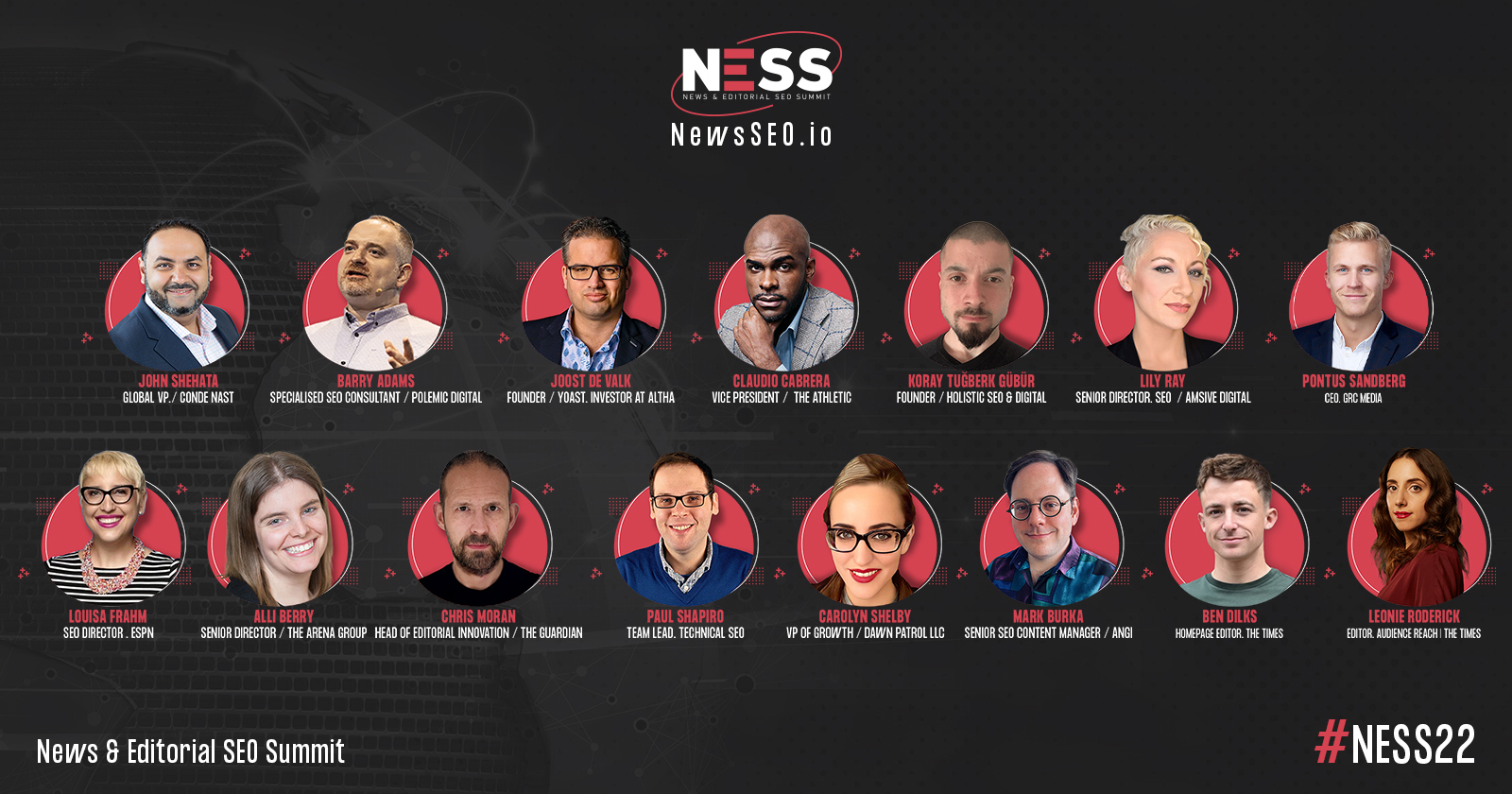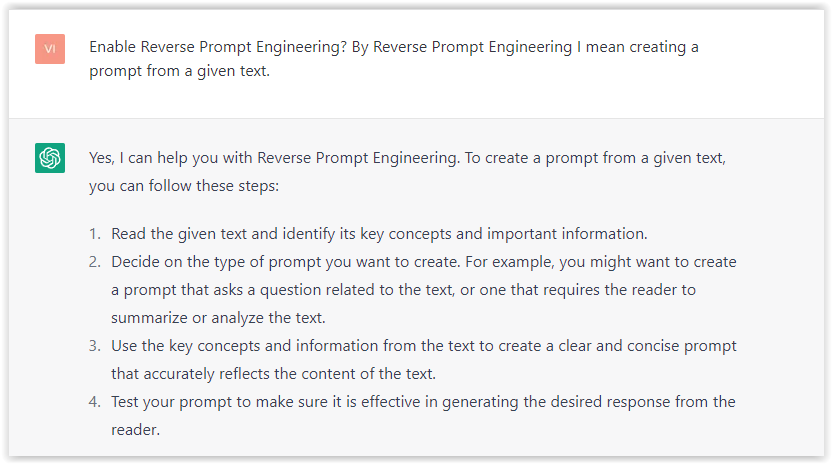SEO
How A News SEO Conference Shaped A Community

This post was sponsored by NESS. The opinions expressed in this article are the sponsor’s own.
“This has been a dream of mine for so many years, to do an SEO conference focused solely on publishers.”
– NESS & NewzDash.com Founder John Shehata, Global VP of Audience Development at Condé Nast
Working in SEO is a constant learning experience – there’s always something new to discover, and when Shehata and Barry Adams founded the News and Editorial SEO Summit (NESS), they did with that principle in mind.
“People who say they’ve really mastered SEO are probably lying, or massively overestimating how good they really are.”
– Barry Adams, NESS Co-Founder & SEO Consultant, Polemic Digital
“No matter how long you’re doing it and how experienced you think you may be, you will always have those moments where you’re totally and utterly stumped, and just have no idea what’s happening.
“We always continue to learn. There’s never a dull moment in SEO. It’s a very fast-moving industry with search engines constantly evolving, user behavior constantly evolving, websites constantly evolving – so no one knows everything.”
– Adams
With NESS, Shehata and Adams are carving out a special community within the world of SEO for continued growth and discovery.
NESS Is A First-Of-Its-Kind SEO Conference
NESS is exclusively dedicated to news publishers looking to unite and share SEO knowledge.
Attendees of this online conference have the opportunity to learn from top experts in the news industry.
Whether you’re a journalist or editor involved with the day-to-day publishing of news content, or an SEO professional looking to upgrade your knowledge in the field, NESS is a valuable online conference you simply can’t miss!
NESS Is Creating A Community
When NESS officially launched in 2021, it was a longtime dream realized.
Seeing how underserved the news SEO community was, Shehata sprung into action.
“I went to many event organizers and asked them to do this conference, but I was turned down… And about two years ago, I decided that I’m going to do it, and I’m going to fund it myself, and I’m just going to go with it. And if it’s a win, it’s a win – if it’s a loss, it’s a loss. But I thought there would be a good community out there that may attend this conference.”
The goal for the inaugural event was to sell 100 tickets; they ended up with over 600 attendees from all over the world – more than 50% of whom were from outside the U.S.
People from massive global publishing organizations down to micro news websites focused on small regional areas dialed in from various timezones to share their experiences, leave comments, give feedback, and exchange information.
“I think that’s something that sets our conference apart,” said Adams. “It’s a niche within a niche conference.”
Shehata and Adams quickly realized that news SEO was a niche worth servicing and specializing in.
“What struck me the most,” Adams continued, “is the generosity of the speakers and the attendees in sharing their knowledge and sharing their learnings with other people who are conceivably their direct competitors. There seems to be a genuine sense of community that ‘we’re all in this together, we’re all doing the same things, we’re not each other’s enemies, we’re each other’s allies, we’re trying to do the same thing, which is generate great journalism and make sure that the biggest possible audience gets a chance to read it.’ And I hope we can continue that over the next few years and continue to service that community as best we can.”
NESS Is Serving The Community
NESS is presented specifically as a virtual conference so it can have a low cost to attend. Shehata’s top priorities when creating NESS were knowledge sharing and giving back.
“A publisher can send 30 people to attend, this would never happen with a traditional conference where they charge $2,000 [per ticket]… The other thing is, I truly believe in giving back. Last year was the pandemic and it was a tough time for a lot of people, so we said, ‘How can we help?’ And last year, we gave about 30 free tickets for any SEO who got laid off or made redundant,” Shehata said.
“We also give free tickets to SEOs from developing countries who cannot afford the conference. So we’re trying every year to do good, and I think this is the ultimate goal. Regardless if you’re an SEO or not, you have to give back to the community and do good.”
This year, NESS also led a fundraising campaign for the Red Cross’s Ukraine relief efforts, encouraging attendees to donate and matching their donations up to $5,000.
NESS Pioneers Online Conference Community Engagement
Instead of a one-way stream with speakers simply talking at the audience, NESS promotes two-way engagement, allowing attendees to participate in the conversation.
The live chat feed allows guests to comment, ask questions, and vote during a presentation.
NESS also allows engagement through virtual tables of around eight people who can talk to the speaker, ask questions, network, and more.
NESS 2022 News SEO Conference Highlights
According to Adams:
“John and I, when we started planning this, we wanted talks that we ourselves would like to see delivered by experts in the field. So we selected topics and speakers based on: ‘What would we like to see? What could we learn from, in terms of SEO specifically for news publishers?’”
Here are some highlights from the NESS 2022 lineup, along with key takeaways from each segment.
How To Successfully Implement Paywalls Without Affecting SEO
Leonie Roderick, The Times, and Ben Dilks, Sunday Times, tackled the dilemma in which readers expect to read news content for free, but publishers still have to make money.
Top tips for implementing a successful paywall strategy include:
- Have a great understanding of your target market and readers.
- Offer a unique selling proposition that sets you apart from your competition, whether it’s better quality, analysis, or insight.
- Don’t be a commodity publisher; have something that makes you stand out. If you don’t, readers will simply switch to another news site with a similar product.
Get all the tips in the recorded session.
Using Automated Articles Successfully: Is It Possible?
This segment of the conference was presented by Carolyn Shelby, VP of Growth at Dawn Patrol LLC.
Matt Southern, Senior News Writer at Search Engine Journal and NESS 2022 attendee, noted his key takeaways from this talk:
“As much as SEO can assist with the distribution and visibility of news stories, it shouldn’t guide the direction of news coverage. Shelby spoke at length about using SEO to help machines understand your stories better. She cautioned attendees not to allow SEO to change their journalistic standards. Covering a story because it presents an opportunity to rank for a popular keyword versus covering a story because it’s the most newsworthy is an example of writing news for SEO. As a reporter, your top priority is to cover the most relevant stories for your audience, while SEO is a tool to help your audience find those stories.”
Top Stories: State Of The Union
This detailed presentation by Shehata featured data from NewzDash, a Google news monitoring system and rank tracker specifically for news publishers.
“With all the tools that John has innovated,” said Adams, “he has this wealth of data about what works in top stories, what is showing in top stories at any given time, and how things have changed.”
Career Growth Panel: What Is Your Next Move?
One of the highest-rated sessions within the conference, this panel included various types of SEO professionals who spoke about their experiences in the industry, how they got to their positions, skills that are needed, etc.
“The importance of committing yourself to a particular practice within SEO was a key takeaway,” said Southern. “SEO is such a diverse field that aspiring to become an expert in every facet of the trade isn’t as realistic as in the early days of search marketing. Moreover, the roles companies are hiring for are getting more specialized. If you’re an SEO who is passionate about news, becoming an expert in News SEO is a viable career option.”
Get access to the full session, now!
Search Engine Journal’s NESS Experience
Our own team members attended the conference; here’s what they had to say:
“As a reporter covering industry news in SEO and digital marketing, NESS was an intersection of my career disciplines. It opened my eyes to the fact that there’s a growing segment of SEO professionals focused solely on optimizing news articles for search engines.”
– Matt Southern, Senior News Writer at Search Engine Journal and NESS 2022 attendee
“It was a blast! NESS is one of the most valuable SEO conferences where experts share their practical experience in publishing, which one can quickly turn into a practice and apply. If you are running a publication or a blog, it is a must-attend.”
– Vahan Petrosyan, Director of IT and Infrastructure at Search Engine Journal and NESS 2022 attendee
Missed this year’s NESS event? You can access video recordings and presentations on their website.
SEO
Google Further Postpones Third-Party Cookie Deprecation In Chrome

Google has again delayed its plan to phase out third-party cookies in the Chrome web browser. The latest postponement comes after ongoing challenges in reconciling feedback from industry stakeholders and regulators.
The announcement was made in Google and the UK’s Competition and Markets Authority (CMA) joint quarterly report on the Privacy Sandbox initiative, scheduled for release on April 26.
Chrome’s Third-Party Cookie Phaseout Pushed To 2025
Google states it “will not complete third-party cookie deprecation during the second half of Q4” this year as planned.
Instead, the tech giant aims to begin deprecating third-party cookies in Chrome “starting early next year,” assuming an agreement can be reached with the CMA and the UK’s Information Commissioner’s Office (ICO).
The statement reads:
“We recognize that there are ongoing challenges related to reconciling divergent feedback from the industry, regulators and developers, and will continue to engage closely with the entire ecosystem. It’s also critical that the CMA has sufficient time to review all evidence, including results from industry tests, which the CMA has asked market participants to provide by the end of June.”
Continued Engagement With Regulators
Google reiterated its commitment to “engaging closely with the CMA and ICO” throughout the process and hopes to conclude discussions this year.
This marks the third delay to Google’s plan to deprecate third-party cookies, initially aiming for a Q3 2023 phaseout before pushing it back to late 2024.
The postponements reflect the challenges in transitioning away from cross-site user tracking while balancing privacy and advertiser interests.
Transition Period & Impact
In January, Chrome began restricting third-party cookie access for 1% of users globally. This percentage was expected to gradually increase until 100% of users were covered by Q3 2024.
However, the latest delay gives websites and services more time to migrate away from third-party cookie dependencies through Google’s limited “deprecation trials” program.
The trials offer temporary cookie access extensions until December 27, 2024, for non-advertising use cases that can demonstrate direct user impact and functional breakage.
While easing the transition, the trials have strict eligibility rules. Advertising-related services are ineligible, and origins matching known ad-related domains are rejected.
Google states the program aims to address functional issues rather than relieve general data collection inconveniences.
Publisher & Advertiser Implications
The repeated delays highlight the potential disruption for digital publishers and advertisers relying on third-party cookie tracking.
Industry groups have raised concerns that restricting cross-site tracking could push websites toward more opaque privacy-invasive practices.
However, privacy advocates view the phaseout as crucial in preventing covert user profiling across the web.
With the latest postponement, all parties have more time to prepare for the eventual loss of third-party cookies and adopt Google’s proposed Privacy Sandbox APIs as replacements.
Featured Image: Novikov Aleksey/Shutterstock
SEO
How To Write ChatGPT Prompts To Get The Best Results

ChatGPT is a game changer in the field of SEO. This powerful language model can generate human-like content, making it an invaluable tool for SEO professionals.
However, the prompts you provide largely determine the quality of the output.
To unlock the full potential of ChatGPT and create content that resonates with your audience and search engines, writing effective prompts is crucial.
In this comprehensive guide, we’ll explore the art of writing prompts for ChatGPT, covering everything from basic techniques to advanced strategies for layering prompts and generating high-quality, SEO-friendly content.
Writing Prompts For ChatGPT
What Is A ChatGPT Prompt?
A ChatGPT prompt is an instruction or discussion topic a user provides for the ChatGPT AI model to respond to.
The prompt can be a question, statement, or any other stimulus to spark creativity, reflection, or engagement.
Users can use the prompt to generate ideas, share their thoughts, or start a conversation.
ChatGPT prompts are designed to be open-ended and can be customized based on the user’s preferences and interests.
How To Write Prompts For ChatGPT
Start by giving ChatGPT a writing prompt, such as, “Write a short story about a person who discovers they have a superpower.”
ChatGPT will then generate a response based on your prompt. Depending on the prompt’s complexity and the level of detail you requested, the answer may be a few sentences or several paragraphs long.
Use the ChatGPT-generated response as a starting point for your writing. You can take the ideas and concepts presented in the answer and expand upon them, adding your own unique spin to the story.
If you want to generate additional ideas, try asking ChatGPT follow-up questions related to your original prompt.
For example, you could ask, “What challenges might the person face in exploring their newfound superpower?” Or, “How might the person’s relationships with others be affected by their superpower?”
Remember that ChatGPT’s answers are generated by artificial intelligence and may not always be perfect or exactly what you want.
However, they can still be a great source of inspiration and help you start writing.
Must-Have GPTs Assistant
I recommend installing the WebBrowser Assistant created by the OpenAI Team. This tool allows you to add relevant Bing results to your ChatGPT prompts.
This assistant adds the first web results to your ChatGPT prompts for more accurate and up-to-date conversations.
It is very easy to install in only two clicks. (Click on Start Chat.)
For example, if I ask, “Who is Vincent Terrasi?,” ChatGPT has no answer.
With WebBrower Assistant, the assistant creates a new prompt with the first Bing results, and now ChatGPT knows who Vincent Terrasi is.
 Screenshot from ChatGPT, March 2023
Screenshot from ChatGPT, March 2023You can test other GPT assistants available in the GPTs search engine if you want to use Google results.
Master Reverse Prompt Engineering
ChatGPT can be an excellent tool for reverse engineering prompts because it generates natural and engaging responses to any given input.
By analyzing the prompts generated by ChatGPT, it is possible to gain insight into the model’s underlying thought processes and decision-making strategies.
One key benefit of using ChatGPT to reverse engineer prompts is that the model is highly transparent in its decision-making.
This means that the reasoning and logic behind each response can be traced, making it easier to understand how the model arrives at its conclusions.
Once you’ve done this a few times for different types of content, you’ll gain insight into crafting more effective prompts.
Prepare Your ChatGPT For Generating Prompts
First, activate the reverse prompt engineering.
- Type the following prompt: “Enable Reverse Prompt Engineering? By Reverse Prompt Engineering I mean creating a prompt from a given text.”
 Screenshot from ChatGPT, March 2023
Screenshot from ChatGPT, March 2023ChatGPT is now ready to generate your prompt. You can test the product description in a new chatbot session and evaluate the generated prompt.
- Type: “Create a very technical reverse prompt engineering template for a product description about iPhone 11.”
 Screenshot from ChatGPT, March 2023
Screenshot from ChatGPT, March 2023The result is amazing. You can test with a full text that you want to reproduce. Here is an example of a prompt for selling a Kindle on Amazon.
- Type: “Reverse Prompt engineer the following {product), capture the writing style and the length of the text :
product =”
 Screenshot from ChatGPT, March 2023
Screenshot from ChatGPT, March 2023I tested it on an SEJ blog post. Enjoy the analysis – it is excellent.
- Type: “Reverse Prompt engineer the following {text}, capture the tone and writing style of the {text} to include in the prompt :
text = all text coming from https://www.searchenginejournal.com/google-bard-training-data/478941/”
 Screenshot from ChatGPT, March 2023
Screenshot from ChatGPT, March 2023But be careful not to use ChatGPT to generate your texts. It is just a personal assistant.
Go Deeper
Prompts and examples for SEO:
- Keyword research and content ideas prompt: “Provide a list of 20 long-tail keyword ideas related to ‘local SEO strategies’ along with brief content topic descriptions for each keyword.”
- Optimizing content for featured snippets prompt: “Write a 40-50 word paragraph optimized for the query ‘what is the featured snippet in Google search’ that could potentially earn the featured snippet.”
- Creating meta descriptions prompt: “Draft a compelling meta description for the following blog post title: ’10 Technical SEO Factors You Can’t Ignore in 2024′.”
Important Considerations:
- Always Fact-Check: While ChatGPT can be a helpful tool, it’s crucial to remember that it may generate inaccurate or fabricated information. Always verify any facts, statistics, or quotes generated by ChatGPT before incorporating them into your content.
- Maintain Control and Creativity: Use ChatGPT as a tool to assist your writing, not replace it. Don’t rely on it to do your thinking or create content from scratch. Your unique perspective and creativity are essential for producing high-quality, engaging content.
- Iteration is Key: Refine and revise the outputs generated by ChatGPT to ensure they align with your voice, style, and intended message.
Additional Prompts for Rewording and SEO:
– Rewrite this sentence to be more concise and impactful.
– Suggest alternative phrasing for this section to improve clarity.
– Identify opportunities to incorporate relevant internal and external links.
– Analyze the keyword density and suggest improvements for better SEO.
Remember, while ChatGPT can be a valuable tool, it’s essential to use it responsibly and maintain control over your content creation process.
Experiment And Refine Your Prompting Techniques
Writing effective prompts for ChatGPT is an essential skill for any SEO professional who wants to harness the power of AI-generated content.
Hopefully, the insights and examples shared in this article can inspire you and help guide you to crafting stronger prompts that yield high-quality content.
Remember to experiment with layering prompts, iterating on the output, and continually refining your prompting techniques.
This will help you stay ahead of the curve in the ever-changing world of SEO.
More resources:
Featured Image: Tapati Rinchumrus/Shutterstock
SEO
Measuring Content Impact Across The Customer Journey

Understanding the impact of your content at every touchpoint of the customer journey is essential – but that’s easier said than done. From attracting potential leads to nurturing them into loyal customers, there are many touchpoints to look into.
So how do you identify and take advantage of these opportunities for growth?
Watch this on-demand webinar and learn a comprehensive approach for measuring the value of your content initiatives, so you can optimize resource allocation for maximum impact.
You’ll learn:
- Fresh methods for measuring your content’s impact.
- Fascinating insights using first-touch attribution, and how it differs from the usual last-touch perspective.
- Ways to persuade decision-makers to invest in more content by showcasing its value convincingly.
With Bill Franklin and Oliver Tani of DAC Group, we unravel the nuances of attribution modeling, emphasizing the significance of layering first-touch and last-touch attribution within your measurement strategy.
Check out these insights to help you craft compelling content tailored to each stage, using an approach rooted in first-hand experience to ensure your content resonates.
Whether you’re a seasoned marketer or new to content measurement, this webinar promises valuable insights and actionable tactics to elevate your SEO game and optimize your content initiatives for success.
View the slides below or check out the full webinar for all the details.
-

 PPC6 days ago
PPC6 days ago19 Best SEO Tools in 2024 (For Every Use Case)
-

 MARKETING7 days ago
MARKETING7 days agoEcommerce evolution: Blurring the lines between B2B and B2C
-
SEARCHENGINES5 days ago
Daily Search Forum Recap: April 19, 2024
-
SEARCHENGINES6 days ago
Daily Search Forum Recap: April 18, 2024
-

 WORDPRESS6 days ago
WORDPRESS6 days agoHow to Make $5000 of Passive Income Every Month in WordPress
-

 SEO6 days ago
SEO6 days ago2024 WordPress Vulnerability Report Shows Errors Sites Keep Making
-

 WORDPRESS6 days ago
WORDPRESS6 days ago10 Amazing WordPress Design Resouces – WordPress.com News
-
WORDPRESS7 days ago
[GET] The7 Website And Ecommerce Builder For WordPress
















You must be logged in to post a comment Login